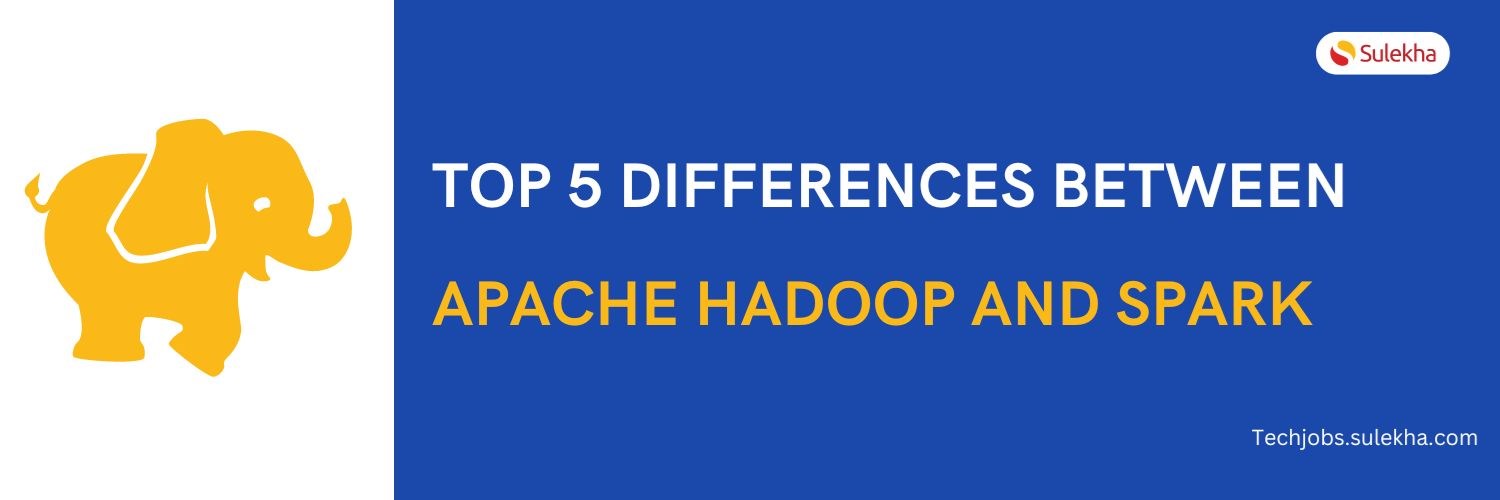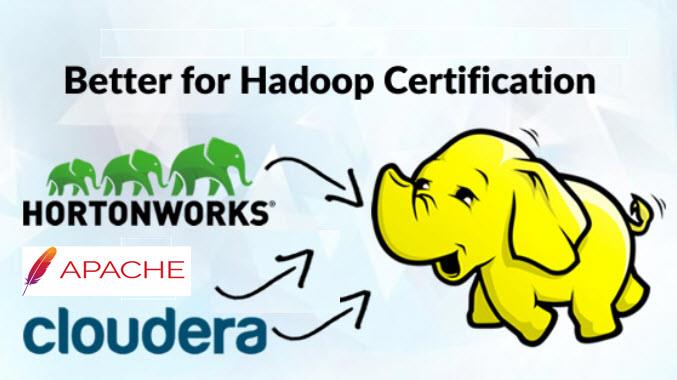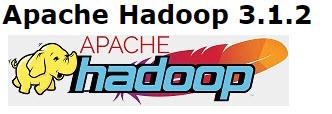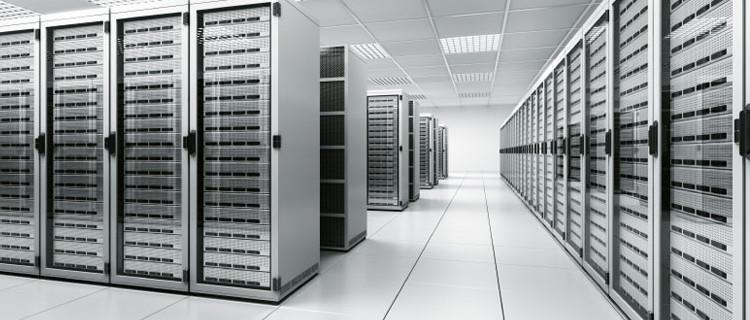Top 5 differences between Apache Hadoop and Spark

Though Hadoop and Spark are offered by the same organization, Apache, it is assumed as competitors in the Big Data industry. The hidden fact is, both the frameworks get lots of improvements with the help of one another. In today’s arena of Big Data, one could definitely encounter a mention about Apache Hadoop and Apache Spark. Here, in this blog, let us discuss the major differences between these two revolutionary frameworks.
Hadoop and Spark are meant for different things
Hadoop and Apache Spark are both big-data frameworks, but they don't really serve the same purposes. Hadoop is essentially a distributed data infrastructure: It distributes massive data collections across multiple nodes within a cluster of commodity servers, which means you don't need to buy and maintain expensive custom hardware. It also indexes and keeps track of that data, enabling big-data processing and analytics far more effectively than was possible previously. Spark, on the other hand, is a data-processing tool that operates on those distributed data collections; it doesn't do distributed storage.
Both are independent from each other
Hadoop includes not just a storage component, known as the Hadoop Distributed File System, but also a processing component called MapReduce, so you don't need Spark to get your processing done. Conversely, you can also use Spark without Hadoop. Spark does not come with its own file management system, though, so it needs to be integrated with one -- if not HDFS, then another cloud-based data platform. Spark was designed for Hadoop, however, so many agree they're better together.
Apache Spark is faster
Spark is generally a lot faster than MapReduce because of the way it processes data. While MapReduce operates in steps, Spark operates on the whole data set in one fell swoop. "The MapReduce workflow looks like this: read data from the cluster, perform an operation, write results to the cluster, read updated data from the cluster, perform next operation, write next results to the cluster, etc.," explained Kirk Borne, principal data scientist at Booz Allen Hamilton. Spark, on the other hand, completes the full data analytics operations in-memory and in near real-time: "Read data from the cluster, perform all of the requisite analytic operations, write results to the cluster, done," Borne said. Spark can be as much as 10 times faster than MapReduce for batch processing and up to 100 times faster for in-memory analytics, he said.
MapReduce is enough for operations
MapReduce's processing style can be just fine if your data operations and reporting requirements are mostly static and you can wait for batch-mode processing. But if you need to do analytics on streaming data, like from sensors on a factory floor, or have applications that require multiple operations, you probably want to go with Spark. Most machine-learning algorithms, for example, require multiple operations. Common applications for Spark include real-time marketing campaigns, online product recommendations, cyber security analytics and machine log monitoring.
Different failure recovery mechanisms (Both are Good)
Hadoop is naturally resilient to system faults or failures since data are written to disk after every operation, but Spark has similar built-in resiliency by virtue of the fact that its data objects are stored in something called resilient distributed datasets distributed across the data cluster. "These data objects can be stored in memory or on disks, and RDD provides full recovery from faults or failures," Borne pointed out.
Find a course provider to learn Hadoop
Java training | J2EE training | J2EE Jboss training | Apache JMeter trainingTake the next step towards your professional goals in Hadoop
Don't hesitate to talk with our course advisor right now
Receive a call
Contact NowMake a call
+1-732-338-7323Take our FREE Skill Assessment Test to discover your strengths and earn a certificate upon completion.
Enroll for the next batch
Hadoop Hands-on Training with Job Placement
- Jan 28 2026
- Online
Hadoop Hands-on Training with Job Placement
- Jan 29 2026
- Online
Hadoop Hands-on Training with Job Placement
- Jan 30 2026
- Online
Related blogs on Hadoop to learn more

Hadoop Big Data Analytics Market Share, Size, and Forecast to 2030
In an era driven by data, the Hadoop Big Data Analytics market stands at the forefront of innovation and transformation. The landscape is poised for exponential growth and evolution as we peer into the future. The "Hadoop Big Data Analytics Market Sh

Hadoop Certification Dumps with Exam Questions and Answers
We have collated some Hadoop certification dumps to make your preparation easy for the Hadoop exam. The questions are multiple-choice patters and we have also highlighted the answer in bold. A brief description of the answer is also mentioned for eas

Apache Hadoop 3.1.2, the brand new software to help
The recent update of Apache Hadoop 3.1.2 had the changes software engineers always intended in the Apache Hadoop- 2. Version. This version includes improvements and additional features from the previous Apache Hadoop, This version is available (GA) a

Learning Hadoop would enhance your Big Data career!
Big Data was among the most sought after careers which are louder and deeper in recent years. Though there are many different interpretations of big data, the need to manage huge clusters of unstructured data matter in the end. Big data simply refers

Top 4 Reasons to enroll for Hadoop Training!
#4 Top Companies around the world into Hadoop Technology World's top leading companies such as DELL, IBM, AWS (Amazon Web Services), Hortonworks, MAPR Technologies, DATASTAX, Cloudera, SUPERMICR, Datameer, adapt, Zettaset, Pentaho, KARMASPHERE and m

Important Components in Apache Hadoop Stack
Apache HDFS Apache HDFS is one of the core significant technologies of Apache Hadoop which acted as a driving force for the next level elevation of Big Data industry. This cost-effective technology to process huge volumes of data revolutionized the

Apache Hadoop Essential Training Course
Learn the Fundamentals of Apache Hadoop Introduction to Apache Hadoop: This introductory class describes the students to learn the basics of Apache Hadoop. This course is a short and sweet preface to the point of Hadoop Distributed File System and

Hadoop simply dominates the big data industry!
Anyone in the data science market must have witnessed the enormous growth and popularity of Hadoop in such a short time. How Hadoop made such a drastic dominance in the big data mainstream? Let us examine the maturity of it in this blog.

Hadoop developer among the most paid professionals
It turns out that Hadoop developers are among the top paid professionals across the world. Below is the list of most paid professions where Hadoop skills occupy most of them. MapReduce is worth $127,315

Significance of Video Analytics on Hadoop
As a matter of fact, Big Data is no longer a strange term. The worldwide organizations and the world of businesses recognize it as one of the rapidly growing area in the Information Technology. Interestingly, the world keeps getting flooded with data
Latest blogs on technology to explore

Drug Safety & Pharmacovigilance: Your 2026 Career Passport to a Booming Healthcare Industry!
Why This Course Is the Hottest Ticket for Science Grads & Healthcare Pros (No Lab Coat Required!)" The Exploding Demand for Drug Safety Experts "Did you know? The global pharmacovigilance market is set to hit $12.5B by 2026 (Grand View Research, 202

Launch Your Tech Career: Why Mastering AWS Foundation is Your Golden Ticket in 2026
There’s one skill that can open all those doors — Amazon Web Services (AWS) Foundation

Data Science in 2026: The Hottest Skill of the Decade (And How Sulekha IT Services Helps You Master It!)
Data Science: The Career that’s everywhere—and Nowhere Near Slowing Down "From Netflix recommendations to self-driving cars, data science is the secret sauce behind the tech you use every day. And here’s the kicker: The U.S. alone will have 11.5 mill

Salesforce Admin in 2026: The Career Goldmine You Didn’t Know You Needed (And How to Break In!)
The Salesforce Boom: Why Admins Are in Crazy Demand "Did you know? Salesforce is the 1 CRM platform worldwide, used by 150,000+ companies—including giants like Amazon, Coca-Cola, and Spotify (Salesforce, 2025). And here’s the kicker: Every single one

Python Power: Why 2026 Belongs to Coders Who Think in Python
If the past decade was about learning to code, the next one is about coding smarter. And in 2026, the smartest move for any IT enthusiast is learning Python — the language that powers AI models, automates the web, and drives data decisions across ind

The Tableau Revolution of 2025
"In a world drowning in data, companies aren’t just looking for analysts—they’re hunting for storytellers who can turn numbers into decisions. Enter Tableau, the #1 data visualization tool used by 86% of Fortune 500 companies (Tableau, 2024). Whether

From Student to AI Pro: What Does Prompt Engineering Entail and How Do You Start?
Explore the growing field of prompt engineering, a vital skill for AI enthusiasts. Learn how to craft optimized prompts for tools like ChatGPT and Gemini, and discover the career opportunities and skills needed to succeed in this fast-evolving indust

How Security Classification Guides Strengthen Data Protection in Modern Cybersecurity
A Security Classification Guide (SCG) defines data protection standards, ensuring sensitive information is handled securely across all levels. By outlining confidentiality, access controls, and declassification procedures, SCGs strengthen cybersecuri

Artificial Intelligence – A Growing Field of Study for Modern Learners
Artificial Intelligence is becoming a top study choice due to high job demand and future scope. This blog explains key subjects, career opportunities, and a simple AI study roadmap to help beginners start learning and build a strong career in the AI

Java in 2026: Why This ‘Old’ Language Is Still Your Golden Ticket to a Tech Career (And Where to Learn It!
Think Java is old news? Think again! 90% of Fortune 500 companies (yes, including Google, Amazon, and Netflix) run on Java (Oracle, 2025). From Android apps to banking systems, Java is the backbone of tech—and Sulekha IT Services is your fast track t